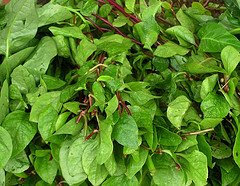A spiritual healer on the NHS staff - what in heaven’s name is going on?
Music is drifting out of one of the anterooms on the haematology unit at University College London Hospital (UCLH). The piece is called Sacred Spirit, a rousing Native American drum song. Inside, a patient lies with her eyes closed, while a hospital staff member, Angie Buxton-King, stands by her bed, holding her hands three inches above the woman’s body and saying nothing. In the corridor, doctors and nurses pass by without so much as a glance.
Sound a little unusual? It should. The UCLH haematology unit claims that Buxton-King and her two colleagues are the only paid spiritual healers to work in an NHS hospital ward. Buxton-King joined the UCLH haematology unit, which treats patients with leukaemia, as well as lymphomas, myelomas and sickle-cell disease, in 1999 as an unpaid volunteer, working one day a week. Since 2001 she has a been fully-paid, part-time staff member, who manages a team of six complementary therapists, as well as treating about ten patients a week.
A fierce debate over complementary therapies on the NHS erupted last May: 13 of Britain’s most senior medical experts, including Edzard Ernst, professor of complementary medicine at the University of Exeter, wrote to hospitals to urge staff not to spend money on unproven treatments. Yet Buxton-King’s mission is to make spiritual healing available to NHS cancer patients. So how did she convince UCLH to take her on, and why does she believe that her therapy is of benefit to patients? Buxton-King’s story begins with the kind of news that every parent dreads. In 1995, acute myeloid leukaemia, a cancer that affects blood-producing cells in the bone marrow, was diagnosed in her son Sam, 7, and he was admitted to Great Ormond Street Hospital. By then, Buxton-King, a full-time mother to Sam and his older brother Nick, then 12, had developed an interest in spiritual healing.
“My mother was told that she had ovarian cancer in 1988,” she says. “We sought out alternative treatments and I sat in on her first healing session. When I mentioned that my hands felt hot as the treatment was taking place, the healer told me it was a sign that I could work with energy healing myself.”
Source - TimesLabels: cancer, complementary, complementary therapy

